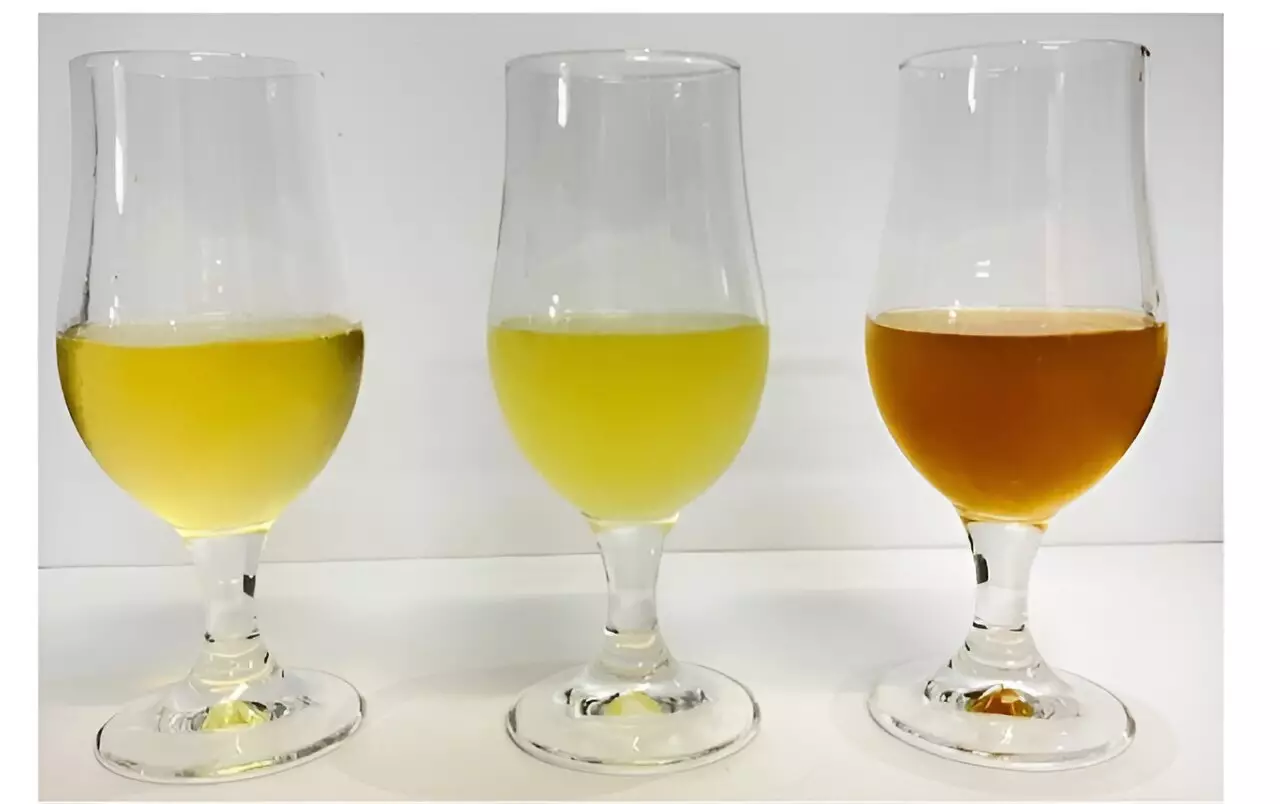In recent years, the popularity of kombucha, a fermented tea drink, has surged thanks to its fizzy texture and tangy flavor. However, a growing trend within the beverage industry is the exploration of fermenting other plant-based drinks, showcasing diverse flavors and potential nutritional benefits. Researchers have begun delving into these alternatives, examining how fruit juices, particularly apple and passion fruit, might serve as viable substitutes for traditional tea-based kombucha.
A groundbreaking study published in ACS Agricultural Science & Technology specifically focused on comparing kombucha with apple and passion fruit juices that have undergone fermentation. This experiment, led by Socorro Vanesca and Frota Gaban, sought to evaluate the biochemical composition and flavor profile of these beverages, with the researchers hypothesizing that fruit-based brews might offer unique health benefits. The process began with a standard fermentation method—sweetened fruit juices as opposed to tea were inoculated with a symbiotic culture of bacteria and yeast (SCOBY) and left to ferment at room temperature for a period of ten days.
Upon completion of the fermentation, the researchers conducted a thorough analysis of the resulting beverages. The findings revealed that the apple beverage had the highest concentration of flavonoids—bioactive compounds known for their antioxidant properties—making it a standout among the drinks tested.
To complement their biochemical analysis, the researchers enlisted a panel of twelve volunteer taste testers, who evaluated the beverages based on visual appeal, aroma, and flavor. Their feedback was telling: while the kombucha and apple drinks were similarly favored for their sweet profiles, the passion fruit beverage was described as more bitter. The apple drink not only elicited a favorable response due to its attractive amber color but also received commendations for its fruitier aroma. This aspect is pivotal, as sensory perception plays a crucial role in consumer preferences.
The results of this study imply that apple juice may have significant potential as a kombucha alternative, both in terms of flavor and health benefits due to its higher flavonoid content. The researchers expressed their excitement about the possibilities this opens up, suggesting that with further investigation, there may be a trove of undiscovered health benefits associated with fermenting various fruits. This burgeoning area of research could contribute substantially to the wellness beverage market, offering consumers a range of choices that are not only refreshing but also nutritionally beneficial.
As the beverage landscape evolves, the research into fruit-based ferments signifies a movement towards innovation and health consciousness. In a world where consumers are increasingly seeking alternatives to sugary sodas and conventional drinks, the emergence of these kombucha-like beverages presents a bright opportunity. With the promise of enhanced flavors and nutritional profiles, the fermentation of fruit juices may very well pave the way for a new class of wellness drinks that cater to a health-oriented demographic eager for flavorful, functional options. Thus, the study not only highlights a shift in consumer preferences but also underscores the potential for future explorations in the world of fermented beverages.

